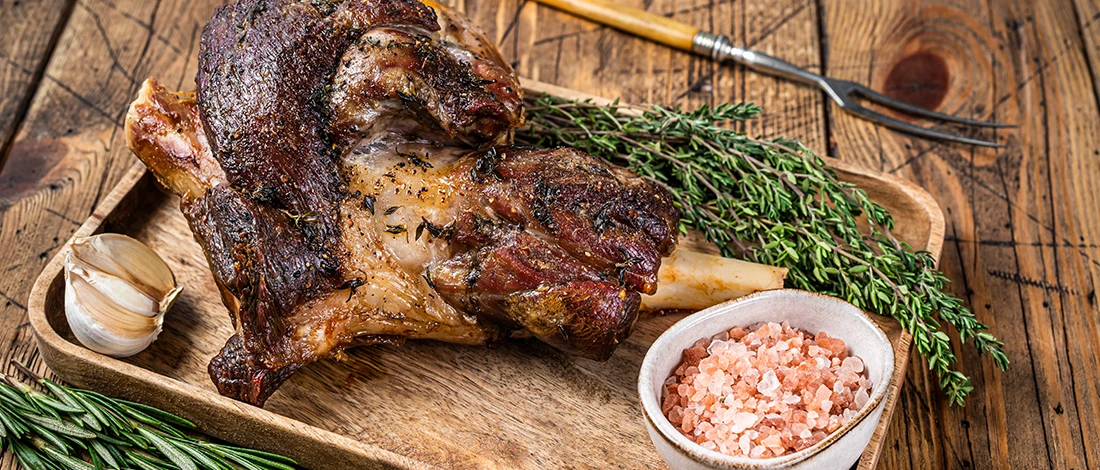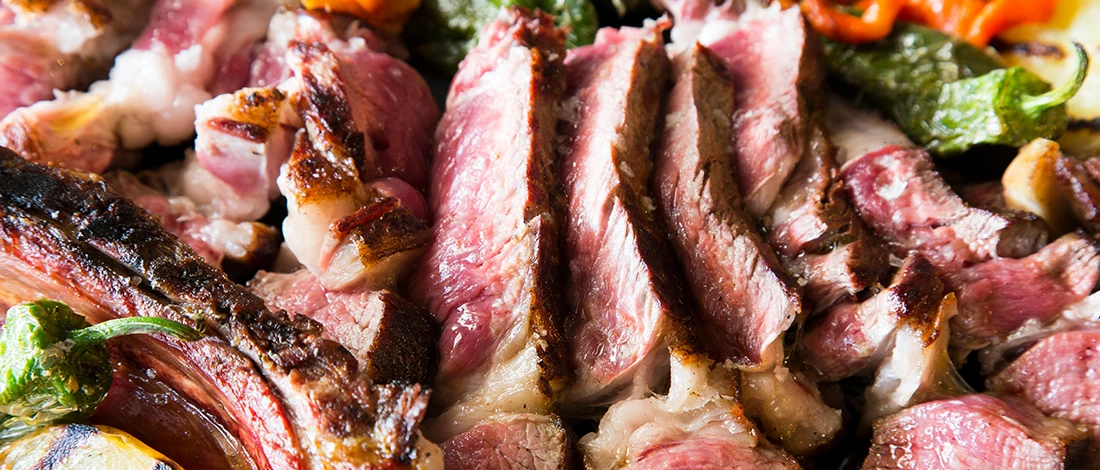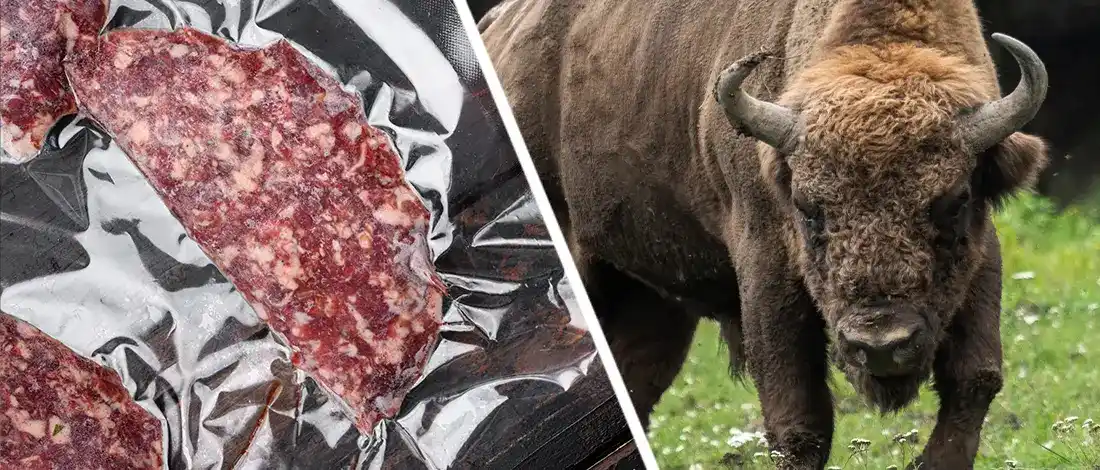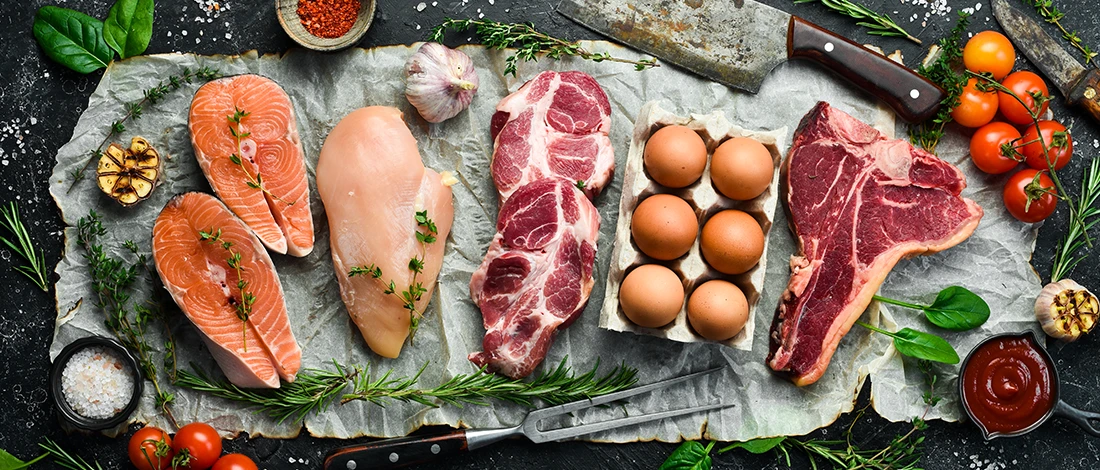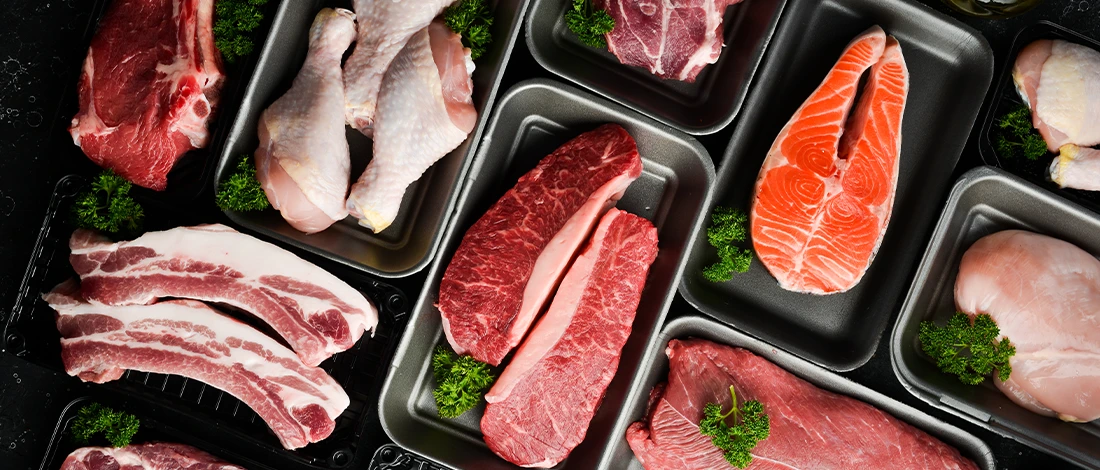I have been on a carnivore diet for over ten years. Throughout this time, I’ve got to know every possible type of meat out there, including bison.
Bison meat remains one of my favorite cuts, so I devoted my time to learning more about its quality and nutritional value, among other things.
If you’re curious whether you should include ground bison meat in your carnivore diet, keep on reading.
Quick Summary
- Bison meat, also known as buffalo meat, is a lean, low-calorie meat source with a unique, slightly sweet flavor and a high concentration of protein, vitamins, and minerals.
- Health benefits of bison meat include its high protein content, essential fatty acids, and high iron content, which makes it a nutritious addition to a carnivore diet.
- Proper preservation and cooking techniques are crucial when preparing bison meat.
What Is Bison?
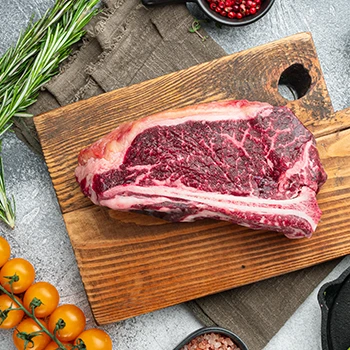
Bison is a four-legged, hoofed animal that is a member of the family Bovidae, which also includes cattle.
They are known for their red meat, which is high in iron.
Bison resembles a hairy ox. Like cattle, its meat is available in chops, steaks, minced meat, stews, and ribs.
I have seen ground bison meat portioned just like how grass-fed beef is usually cut.
The two varieties of bison that exist today in their various regions are the European bison and the American bison.
I prefer the American bison because it's shorter but heartier, whereas the European bison has longer limbs but weighs less.
I’ve discovered that before European settlement, roughly 60 million bison inhabited the region, hunted by Native Americans for meat, fur, skeletons, and anything else the animal offered [1].
"Bison get fattened up on annual grasses instead of wild pasture and this assures that the meat and fat have a more homogeneous flavor."
- Kyle Mendenhall, Executive Chef
The Europeans that arrived also targeted the animal, and as a result, the American bison species had nearly reduced to extinction by 1900.
Attempts to replenish the population have aided the return of bison.
If you are interested in leaner meat, you should consider looking for bison at groceries and your local butcher shop, though they are not as popular as cow's meat.
Bison Meat Nutrition
I love bison meat, also known as buffalo meat, as it is low in calories, especially compared to other red meat sources.
A meal of ground bison (100 grams) has roughly 143 calories on average compared to chicken and many other red types of meat.
It also has a higher zinc and iron concentration, which means bison edges beef and elk meat.
Health Benefits of Bison Meat

Here’s why bison meat could be a healthy addition to your carnivore diet.
1. A Great Source of Protein
Each serving contains around 22 gr of protein that the body uses to develop and repair healthy tissue.
The protein also aids in manufacturing enzymes and hormones plus maintains cell walls and immunological components [2].
2. Vitamins and Minerals
Buffalo meat is high in Selenium, Phosphorus, Vitamin B12, and Zinc, but it's also a great source of Niacin, Iron, and Vitamin B6, all of which should be included in your daily meals.
3. Omega-3 and Omega-6
Buffalo meat provides linoleic (omega - 3) as well as linoleic (omega - 6) triglycerides, which are known as "essential fatty acids" [3].
These elements are essential for humans to ingest but cannot be produced by our systems and are thus frequently deficient.
Their role is to help in the creation of cellular membranes, to produce hormone-like substances, and to participate in immunological and ocular processes.
Omega-3 fatty acids were demonstrated to help fight Alzheimer's disease and lower the risk of heart attack [4].
4. High in Iron
Bison steaks are an excellent supply of bio-accessible iron.
High iron concentration enhances the ability of the blood to transfer carbon dioxide and oxygen to and from the body's tissues.
As a health-conscious individual, I choose bison because it has more iron and much less fat compared to other meat.
5. Low in Cholesterol
In terms of cholesterol content, I prefer bison meat because it has a lower concentration of fat content when compared to other red meat products.
What Does Bison Meat Taste Like?

Bison meat tastes like beef; however, it has a unique flavor and a slightly sweeter undertone that distinguishes it.
No matter how I cook bison meat, it will be extremely soft and not gamey, unlike certain specialty steaks.
Think of your favorite steak or burger: bison taste may compete better with it.
The reduced fat level of bison may also explain why the steak is softer and has more even marbling.
Unlike lamb, there is no gamey and wild aftertaste to the meat. Thanks to the high iron content, it has an earthy and richer flavor.
This could also explain its surprisingly red hue. Meanwhile, the flesh has a considerably rougher texture than you might expect.
I have tried bison burgers, and It has a somewhat thicker grain, which isn't entirely bad. The meat's heavier texture requires a bit of chew, but it remains to be softer and more tender than ground beef.
This is also affected by the sort of cut you ingest. I always go for the most tender cuts like the filet mignon, but there's also the bison ribeye that has the greatest marbling.
I avoid overcooking it because I discovered that doing so gives me a rougher, chewier exterior.
Also Read: Bison vs Beef
Risks and Considerations for Eating Bison

There have been no special concerns linked with consuming bison meat as it is frequently reared free-range on ranches.
There is less probability of spoilage microorganisms when you buy bison meat compared to industrially farmed beef.
The great threat you'll have to consider while preparing and consuming grass-fed bison steak is the same as any animal meat: ensuring correct preservation and processing temperatures.
If you don't have easy access to bison meat in your local grocery store, you can consider purchasing directly from our best-reviewed bison meat delivery companies.
Here are a few handy tips to follow when purchasing any sort of meat like bison and beef:
- Don't purchase deep brown meat, discolored, or smells bad.
- Avoid purchasing bison and beef with broken packaging since it could be exposed to the air and pathogens.
- While cooking and preparing bison and beef, clean your hands often.
- Utilize a separate chopping board for steak and immediately wash it and any tools you use.
- Do not store bison and beef in the refrigerator for more than three days or in your fridge for over three months.
- Cook ground meat with an internal temperature of 165°F and whole steak to a range of 145°F.
Related Articles:
FAQs
Is Bison Better for You Than Beef?
Yes, bison is better for you than beef since it has fewer calories and saturated fat.
What Animal Is Bison Meat?
Bison meat is obtained from bison, often called buffalo or North American bison.
Does Bison Taste Like Beef?
Yes, bison tastes like beef; however, it has a mildly sweet undertone that distinguishes it.
Is Bison Good Meat To Eat?
Yes, bison is good meat to eat. It has fewer calories, saturated fat, and cholesterol and high in protein. It's also high in zinc, omega-3 fats, iron, vitamin B12, and selenium.
How Expensive Is Bison?
Bison is not that expensive. The recent USDA price for rail-bound bison meat is $4.80 per pound.
References:
- https://www.sciencedirect.com/science/article/pii/S0190052818300087
- https://und.edu/student-life/dining/_files/docs/fact-sheets/protein.pdf
- https://www.ncbi.nlm.nih.gov/pmc/articles/PMC5858688/
- https://www.ncbi.nlm.nih.gov/pmc/articles/PMC4537710/


